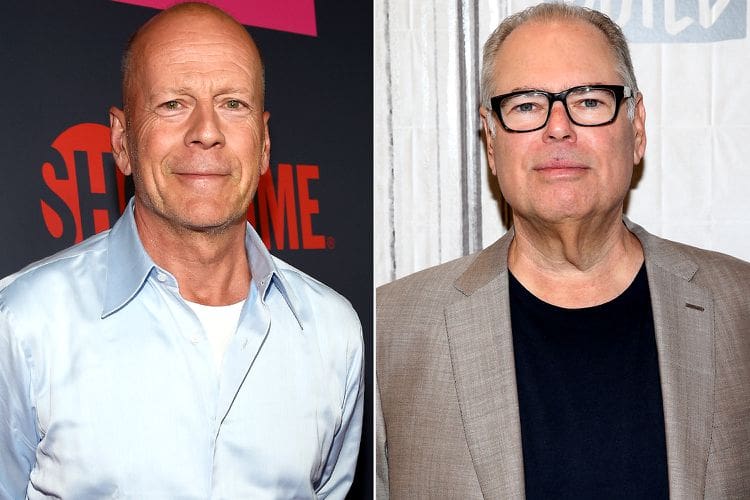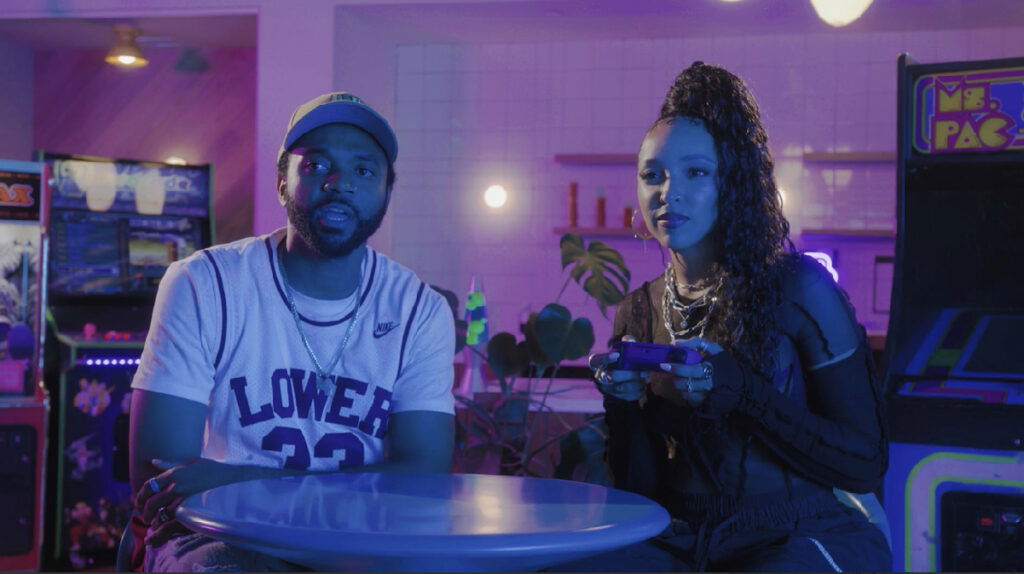Bruce Willis Is ‘Not Totally Verbal’ amid Dementia Diagnosis — ‘Yet He’s Still Bruce’, Moonlighting Creator Says
Bruce Willis’ friend and the creator of his hit show “Moonlighting” Glenn Gordon Caron is offering more insight into the heartbreaking ways Willis’ life has changed. via: People On Tuesday, the 69-year-old spoke to the New York Post about how he tries to visit the Die Hard actor every month. “I’m not always quite that The post Bruce Willis Is ‘Not Totally Verbal’ amid Dementia Diagnosis — ‘Yet He’s Still Bruce’, Moonlighting Creator Says appeared first on LOVEBSCOTT.


Bruce Willis’ friend and the creator of his hit show “Moonlighting” Glenn Gordon Caron is offering more insight into the heartbreaking ways Willis’ life has changed.
via: People
On Tuesday, the 69-year-old spoke to the New York Post about how he tries to visit the Die Hard actor every month.
“I’m not always quite that good but I try and I do talk to him and his wife [Emma Heming Willis] and I have a casual relationship with his three older children,” Caron told the outlet. “I have tried very hard to stay in his life.”
“The thing that makes [his disease] so mind-blowing is [that] if you’ve ever spent time with Bruce Willis, there is no one who had any more joie de vivre [joy of living] than he,” the director continued. “He loved life and … just adored waking up every morning and trying to live life to its fullest.”
Caron added that FTD has made Bruce, 68, unable to communicate, explaining that it’s as if “he now sees life through a screen door.” However, he said Bruce does still recognize him when he visits.
“My sense is the first one to three minutes he knows who I am,” he said. “He’s not totally verbal; he used to be a voracious reader — he didn’t want anyone to know that — and he’s not reading now. All those language skills are no longer available to him, and yet he’s still Bruce.”
“When you’re with him you know that he’s Bruce and you’re grateful that he’s there,” he noted, “but the joie de vivre is gone.”
Last month, Emma appeared on the Today show and shared that she’s not sure if her husband is aware of his health condition.
“It’s hard to know,” the Make Time Wellness founder, 45, said on the show, alongside Susan Dickinson, head of the Association for Frontotemporal Degeneration (AFTD).
“What I’m learning is that dementia is hard,” Emma said. “It’s hard on the person diagnosed. It’s also hard on the family. And that is no different for Bruce, or myself, or our girls. When they say that this is a family disease, it really is.”
Frontotemporal dementia is an all-encompassing term for a group of brain disorders that threatens, as the name implies, the frontal and temporal lobes of the brain. This means that parts of these lobes atrophy.
The shrinking of these areas can cause speech issues, emotional problems and changes in personality. Other symptoms can include loss of motor skills including problems walking, swallowing or muscle spasms.
Because the disease affects the frontal lobe — which controls self-insight — any understanding that they have changed is often the first thing those diagnosed with FTD lose, Dickinson said on Today. “Other people retain that for a long time,” she explained. “We really don’t know.”
In fact, there’s a lot medical professionals and researchers are still learning about FTD. “Most doctor’s aren’t familiar with it, so it can take almost 4 years for people to get diagnosed on average,” Dickinson said. Along the way, they approve “many misdiagnoses” including “depression, bipolar disease, Alzheimer’s, or even someone with some of the movement diseases” like “Parkinson’s or ALS.”
That appeared to happen to Bruce. In March 2022, his family first publicly revealed that he was stepping away from acting after being diagnosed with aphasia, a language disorder that affects a person’s ability to communicate. But in February, Emma shared that his condition had worsened, and that he had frontotemporal dementia.
FTD symptoms tend to get worse over time. Patients typically begin to notice symptoms between 40 – 65 years of age, but it can affect people who are younger. It is the most common form of dementia for people under 60.
Coming to terms with Bruce’s diagnosis was both “the blessing and the curse,” Emma said at the time. One one hand, it was helpful “to sort of finally understand what is happening” she could be “into the acceptance of what is.” But, as she noted, “it doesn’t make it any less painful.”
“Just being in the acceptance is, and just being in the know of what is happening to Bruce, just makes it a little bit easier,” she said.
The post Bruce Willis Is ‘Not Totally Verbal’ amid Dementia Diagnosis — ‘Yet He’s Still Bruce’, Moonlighting Creator Says appeared first on LOVEBSCOTT.












